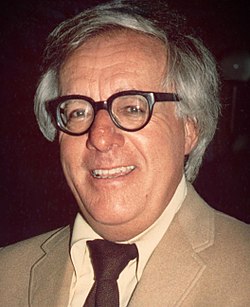Ray Bradbury Quote
What do you want more than anything else in the world? What do you love, or what do you hate? Find a character, like yourself, who will want something or not want something, with all his heart. Give him running orders.Shoot him off. Then follow as fast as you can go. The Character, in his great love, or hate, will rush you through to the end of the story. The zest and gusto of his need, and there is zest in hate as well as in love, will fire the landscape and raise the temperature of your typewriter thirty degrees.
Ray Bradbury
What do you want more than anything else in the world? What do you love, or what do you hate? Find a character, like yourself, who will want something or not want something, with all his heart. Give him running orders.Shoot him off. Then follow as fast as you can go. The Character, in his great love, or hate, will rush you through to the end of the story. The zest and gusto of his need, and there is zest in hate as well as in love, will fire the landscape and raise the temperature of your typewriter thirty degrees.
Related Quotes
About Ray Bradbury
Ray Douglas Bradbury (US: BRAD-berr-ee; August 22, 1920 – June 5, 2012) was an American author and screenwriter. One of the most celebrated 20th-century American writers, he worked in a variety of genres, including fantasy, science fiction, horror, mystery, and realistic fiction.
Bradbury is best known for his novel Fahrenheit 451 (1953) and his short-story collections The Martian Chronicles (1950), The Illustrated Man (1951), and The October Country (1955). Other notable works include the coming of age novel Dandelion Wine (1957), the dark fantasy Something Wicked This Way Comes (1962) and the fictionalized memoir Green Shadows, White Whale (1992). He also wrote and consulted on screenplays and television scripts, including Moby Dick and It Came from Outer Space. Many of his works were adapted into television and film productions as well as comic books. Bradbury also wrote poetry which has been published in several collections, such as They Have Not Seen the Stars (2001).
The New York Times called Bradbury "An author whose fanciful imagination, poetic prose, and mature understanding of human character have won him an international reputation" and "the writer most responsible for bringing modern science fiction into the literary mainstream".
Bradbury is best known for his novel Fahrenheit 451 (1953) and his short-story collections The Martian Chronicles (1950), The Illustrated Man (1951), and The October Country (1955). Other notable works include the coming of age novel Dandelion Wine (1957), the dark fantasy Something Wicked This Way Comes (1962) and the fictionalized memoir Green Shadows, White Whale (1992). He also wrote and consulted on screenplays and television scripts, including Moby Dick and It Came from Outer Space. Many of his works were adapted into television and film productions as well as comic books. Bradbury also wrote poetry which has been published in several collections, such as They Have Not Seen the Stars (2001).
The New York Times called Bradbury "An author whose fanciful imagination, poetic prose, and mature understanding of human character have won him an international reputation" and "the writer most responsible for bringing modern science fiction into the literary mainstream".
